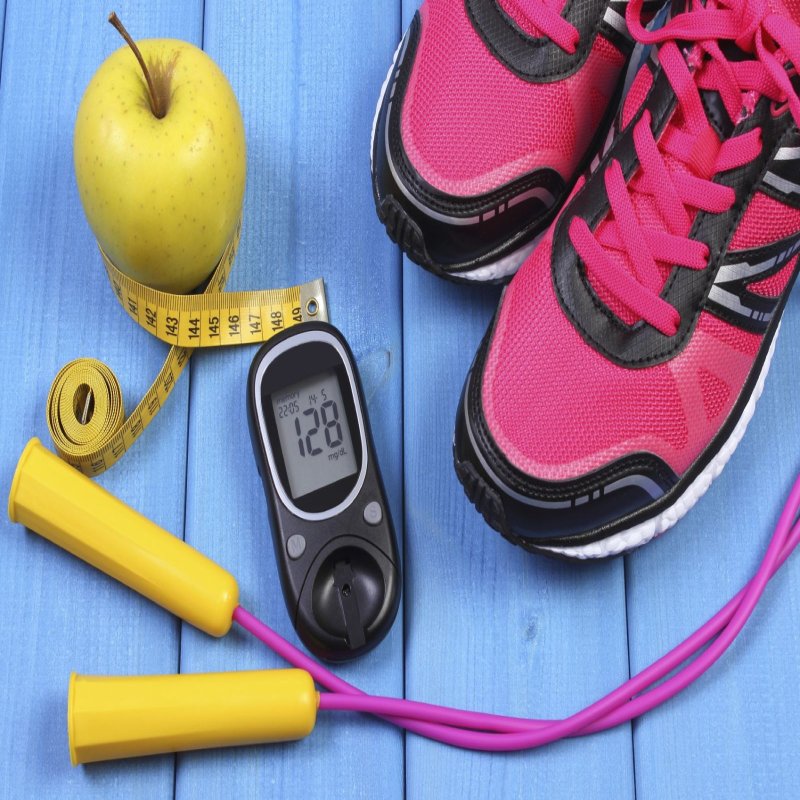
Insulin is an important hormone that has many roles in the body. When your insulin sensitivity is low, it puts pressure on your pancreas to increase insulin production to clear sugar from your blood. Low insulin sensitivity may also result in chronically high blood sugar levels, which are thought to increase your risk of many diseases, including diabetes and heart disease. It is important to know that there are many things you can do to naturally increase your insulin sensitivity.

- Regular physical activity: Engaging in regular exercise is crucial for improving insulin sensitivity. Exercise helps your body use insulin more effectively, allowing glucose to enter the cells for energy. Aim for a combination of aerobic exercises (such as brisk walking, cycling, or swimming) and strength training exercises at least three to five times per week.
- Stress management: Chronic stress can contribute to insulin resistance. Incorporating stress management techniques into your routine, such as meditation, deep breathing exercises, yoga, or engaging in hobbies and activities you enjoy, can help reduce stress levels and improve insulin sensitivity.
- Sufficient sleep: Several studies have found that not getting enough sleep has been linked to reduced insulin sensitivity. Inadequate sleep or poor sleep quality can disrupt insulin regulation and contribute to insulin resistance. Making up for lost sleep can help reverse the effects of decreased sleep on insulin resistance. Aim for seven to nine hours of quality sleep each night to support optimal metabolic function.
- Weight management: Excess weight can make your body less sensitive to insulin and make you more likely to get type 2 diabetes. This is because your body produces hormones that make your muscles and liver more resistant to insulin. Maintaining a healthy weight or losing excess weight if you are overweight or obese can significantly improve insulin sensitivity. Focus on a balanced, calorie-controlled diet, regular exercise, and a sustainable approach to weight loss.
- Herbal and dietary supplements: Some herbs and dietary supplements may have potential benefits in improving insulin sensitivity, although more research is needed. Examples include cinnamon, berberine, alpha-lipoic acid, chromium, and magnesium. Consult with a healthcare professional or a registered naturopathic doctor to determine if these supplements are appropriate for you and to discuss the proper dosage.
- Mindful eating: Paying attention to hunger and fullness cues, practicing mindful eating, and cultivating a positive relationship with food can help promote healthier eating habits. Slow down while eating, and listen to your body's signals of hunger and satiety.
- Supportive therapies: Other holistic approaches such as acupuncture, massage therapy, and chiropractic care may have potential benefits in improving overall well-being and reducing stress levels. These therapies can complement other lifestyle changes but should be discussed with a qualified practitioner.

Conclusion
Because insulin resistance has no symptoms until it becomes pre-diabetes, the best way to prevent and reverse it is to maintain a healthy weight and exercise regularly. Besides undergoing the above-listed lifestyle modifications, eating a healthy diet is also an important part of preventing and reversing insulin resistance. Developing a plan, monitoring your progress, and seeking help from your healthcare professional, family, and friends can all help you make changes to your lifestyle that may help prevent or reverse your prediabetes and insulin resistance.
Frequently Asked Questions (FAQs)
1. Besides diet, what can I do to improve insulin sensitivity?
Exercise is a powerful tool! Regular physical activity helps your muscles utilize glucose for energy, improving insulin sensitivity. Aim for at least 30 minutes of moderate-intensity exercise most days of the week.
2. How can sleep impact my insulin resistance?
Chronic sleep deprivation disrupts hormones that regulate blood sugar. Aim for 7-8 hours of quality sleep each night to optimize insulin sensitivity.
3. Does stress affect insulin resistance?
Yes, stress hormones like cortisol can impair insulin function. Techniques like yoga, meditation, deep breathing, and spending time in nature can help manage stress and improve insulin sensitivity.
4. Can certain supplements help with insulin resistance?
Some research suggests Berberine, Magnesium, and Chromium may improve insulin sensitivity. However, consult your doctor before starting any supplements, as they can interact with medications.
5. What about alternative therapies?
Acupuncture and mindfulness practices may offer benefits for managing insulin resistance, although more research is needed. Speak to a qualified practitioner about potential applications.


.png)


